Are you stuck in a relationship with someone where you love and hate them at the same time? Feeling love and hate for the same person can unnecessarily complicate a relationship. But what is a love and hate relationship?
Let us explore what does a love hate relationship mean, why people have them, and how to navigate this complicated emotional terrain.
What is a love and hate relationship?
Love and hate are two of the most powerful emotions that humans can experience. When these two intense feelings collide, they create a unique and complex relationship known as a love hate relationship.
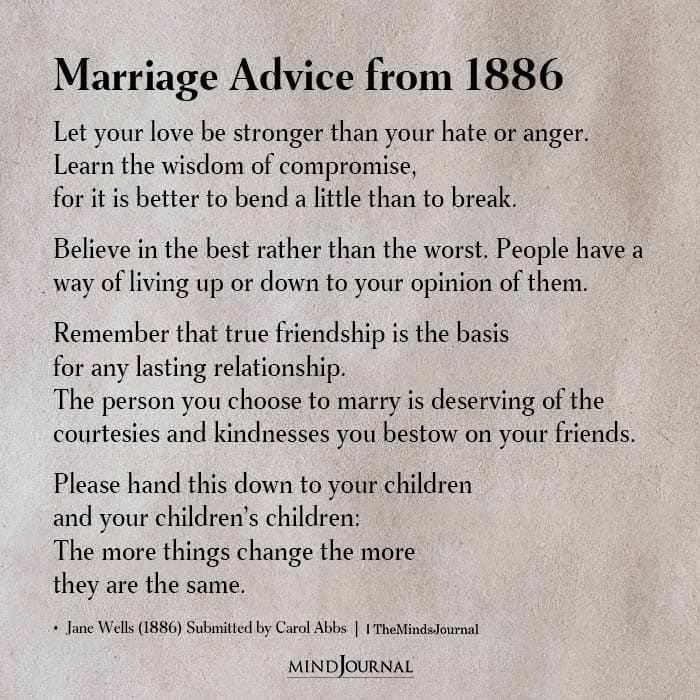
So what is a love hate relationship?
A love-hate relationship is a type of relationship where the partners experience both love and hate towards each other. It is a volatile relationship where the emotions can shift from love to hate in a matter of seconds.
Hate love and complications. That’s what a love-hate relationship is. It is a type of a relationship where the love hate balance is skewed.
This type of connection is characterized by extreme highs and lows, where one moment you may feel deeply in love with someone, only to be overcome with anger or frustration the next. While it may seem like an oxymoron, love-hate relationships are more common than you might think.
Now that we have some idea about what is a love hate relationship, let’s understand the complexities of hate love in such relationships.
Related: 6 Toxic Relationship Habits Most People Think Are Normal
Dynamics of love-hate relationships
In a love-hate relationship, the partners may have a strong attraction towards each other, but they also have a lot of conflicts and disagreements. The partners may love each other deeply, but they may also despise each other for their flaws and shortcomings.
To better understand what is a love and hate relationship, we have to learn about certain key characteristics. Here are some of the traits that are commonly associated with a love-hate relationship:
1. Intense emotions
In relationships dominated by hate love, the partners experience intense emotions towards each other. They may feel extreme love and affection one moment, and then intense anger and hatred the very next moment.
2. Conflict
Conflict often takes center stage in relationships where the love hate balance is not normal. The partners may argue and fight frequently, and they may struggle to find common ground.
3. Rollercoaster ride
The emotions in a love-hate relationship can be unpredictable, making it feel like a rollercoaster ride. The partners may experience extreme highs and lows within a short period of time.
4. Passionate
The intensity of a love-hate relationship can also lead to passionate moments. The partners may have intense physical and emotional connections, but these moments are often followed by equally intense arguments.
5. Fear of abandonment
When you know what does a love hate relationship mean, you realize that the fear of abandonment often plays a crucial role. The partners may worry that the other will leave them, which can lead to clingy or possessive behavior.
6. Push-pull dynamic
A hate love relationship often involves a push-pull dynamic. The partners may feel drawn towards each other but then push each other away when things get too intense.
7. Jealousy
Jealousy is another common characteristic of a love-hate relationship. The partners may become jealous of each other’s friends, hobbies, or other interests.
8. Emotional exhaustion
The constant ups and downs of a love-hate relationship can be emotionally exhausting. The partners may feel drained and overwhelmed by the intensity of their emotions.
Understanding these characteristics and dynamics can help us better understand what is a love and hate relationship. But there is a lot more to uncover on our quest for exploring the murky depths of what is a love hate relationship.
Related: Revealing the Mask: Top 7 Indicators of Unhealthy Jealousy
Why people experience love hate relationships
According to love hate relationship psychology, there are various reasons why we get into such relationships. It can be due to unresolved conflicts, past traumas, or personal insecurities.
In some cases, the intense emotions of love and hate can be linked to attachment styles or personality traits. It is also possible for a love-hate relationship to develop gradually over time as partners experience ups and downs in their relationship.
Love hate relationship psychology reveals that relationships with skewed love hate balance are complex and multifaceted. Hence, there are many factors that can contribute to the development and maintenance of such relationships, such as –
1. Unresolved conflicts
Conflicts that are not resolved can contribute to a love-hate relationship. When partners have disagreements or hurt each other, but do not work through the issues, negative feelings can build up and coexist with positive feelings.
2. Past traumas
Past traumas, such as childhood abuse or neglect, can impact a person’s ability to form healthy relationships.
These traumas can cause a person to have difficulty trusting others, fear of abandonment, or difficulty regulating emotions, which can contribute to a love-hate dynamic.
3. Attachment styles
Attachment styles, which are learned in early childhood, can impact how people form and maintain relationships.
According to love hate relationship psychology, people with anxious or avoidant attachment styles may be more prone to love-hate relationships due to their fear of rejection or their tendency to push away or cling to their partner.
4. Personality traits
Certain personality traits, such as impulsivity, emotional instability, or narcissism, can contribute to a love-hate relationship. These traits can cause a person to have intense emotions, difficulty regulating them, or a need for attention and validation from their partner.
5. Intermittent reinforcement
Understanding what does a love hate relationship mean makes you realize that intermittent reinforcement of positive and negative experiences in a relationship can contribute to this love-hate dynamic.
When partners experience both positive and negative interactions with each other, it can create a sense of unpredictability and keep them hooked on the relationship.
6. Idealization and devaluation
Some love-hate relationships involve idealization and devaluation, where partners see each other as either all good or all bad. This extreme black-and-white thinking can contribute to intense emotions and conflict in the relationship.
7. Fear of vulnerability
In some cases, a love-hate relationship can develop because one or both partners are afraid of being vulnerable. They may alternate between expressing love and affection, and pushing the other away to avoid being hurt or rejected.
Related: Why Children Have Love-Hate Relationships With Their Parents: 5 Compelling Reasons
Understanding the factors that contribute to these relationships can help us recognize and work through the issues that are keeping them stuck in a love-hate dynamic.
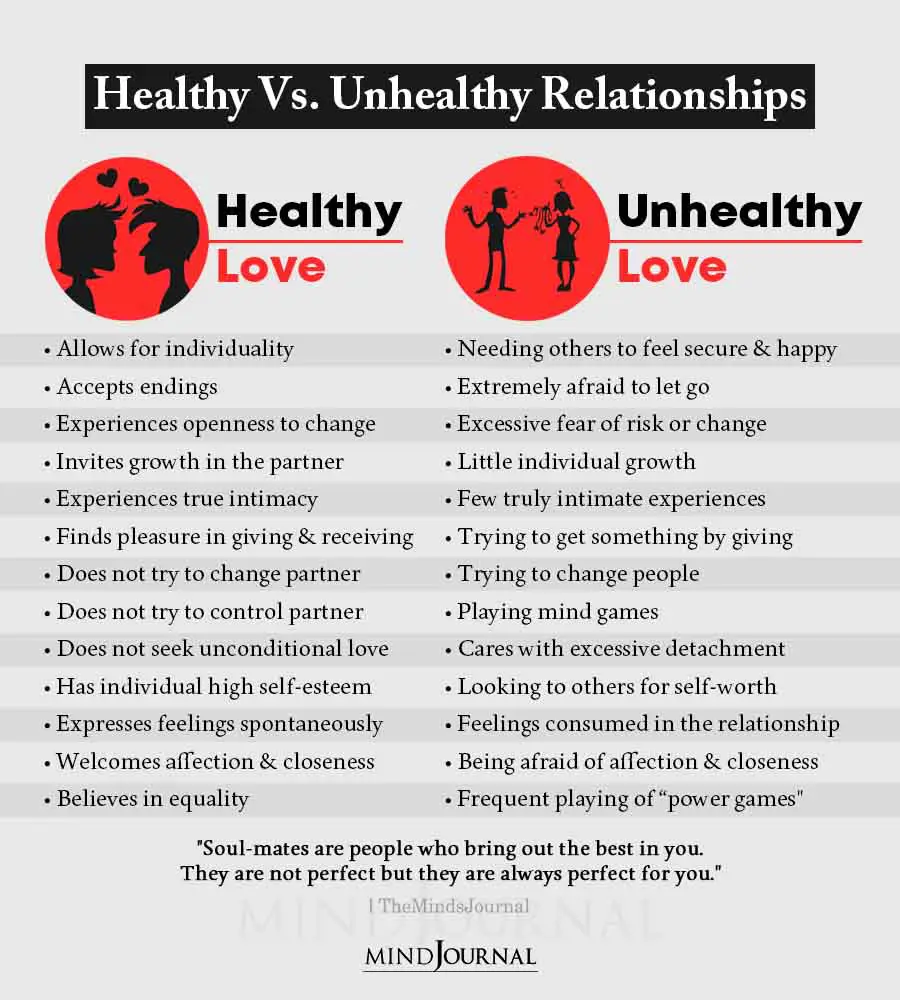
How a love-hate relationship can affect you
While understanding what is a love and hate relationship is important, it is also important for us to know how such relationships affect us in order to find ways to cope with the toxicity that may come from these relationships.
Here are some of the potential effects of being in a love-hate relationship:
1. Emotional turmoil
The constant back-and-forth of emotions in a love-hate relationship can be emotionally draining. The partners may feel like they are on an emotional rollercoaster, which can take a toll on their mental health.
2. Low self-esteem
In a love-hate relationship, partners may constantly criticize and belittle each other. This can lead to low self-esteem and a negative self-image, according to love hate relationship psychology.
3. Trust issues
The constant conflict and jealousy in a love-hate relationship can lead to trust issues. Partners may doubt each other’s loyalty and honesty, which can erode the foundation of the relationship.
4. Isolation
Partners in a love-hate relationship may become isolated from friends and family. They may feel embarrassed or ashamed to talk about their relationship, which can lead to social isolation.
5. Physical health problems
The stress and emotional turmoil of a love-hate relationship can lead to physical health problems. Partners may experience headaches, stomach problems, and other physical symptoms due to the stress of the relationship.
6. Difficulty moving on
A love-hate relationship can be difficult to let go of. Partners may feel like they are stuck in a cycle of intense emotions, making it hard to move on even when the relationship is toxic.
7. Impact on future relationships
Being in a love-hate relationship can affect how partners approach future relationships. They may struggle to trust others and may have difficulty forming healthy, stable relationships.
Now that you have a deeper idea about what is a love hate relationship, let us understand how you can deal with it.
Related: 5 Signs You’re Clinging To Toxic Hope
How to deal with a love-hate relationship
While dealing with a love-hate relationship can be challenging, understanding what does a love hate relationship mean can help you figure out ways to heal yourself and your relationship.
Understanding what is a love and hate relationship is the first step towards recovery. There are ways to manage the emotions and conflicts that come with such relationships. Here are some strategies for dealing with a love-hate relationship:
1. Seek therapy
Therapy can be a helpful way to work through the emotions and conflicts in a love-hate relationship. A therapist can provide support and guidance for managing intense emotions, improving communication, and developing coping strategies.
2. Set boundaries
Setting boundaries can help partners manage the conflicts and emotions in a love-hate relationship. Boundaries can include limits on communication, time spent together, and behavior during arguments.
3. Practice self-care
Taking care of oneself is essential when dealing with a love-hate relationship. Engaging in activities that promote mental and physical well-being, such as exercise, meditation, and hobbies, can help partners manage stress and emotional turmoil.
4. Improve communication
Communication is key in any relationship, but it is especially important in a love-hate relationship. Partners can work on improving communication by learning active listening skills, expressing emotions clearly and respectfully, and avoiding blame and criticism.
5. Identify triggers
In a love-hate relationship, certain situations or behaviors may trigger intense emotions. Partners can work on identifying these triggers and developing strategies for managing them.
Related: 7 Signs You Are In A Love-Hate Relationship And How To Fix It
6. Consider ending the relationship
When you know what is a love and hate relationship and realize that you are hopelessly stuck in one, it may be necessary to end a love-hate relationship if it is toxic and causing significant emotional distress.
This can be a difficult decision to make, but it is important to prioritize one’s own well-being.
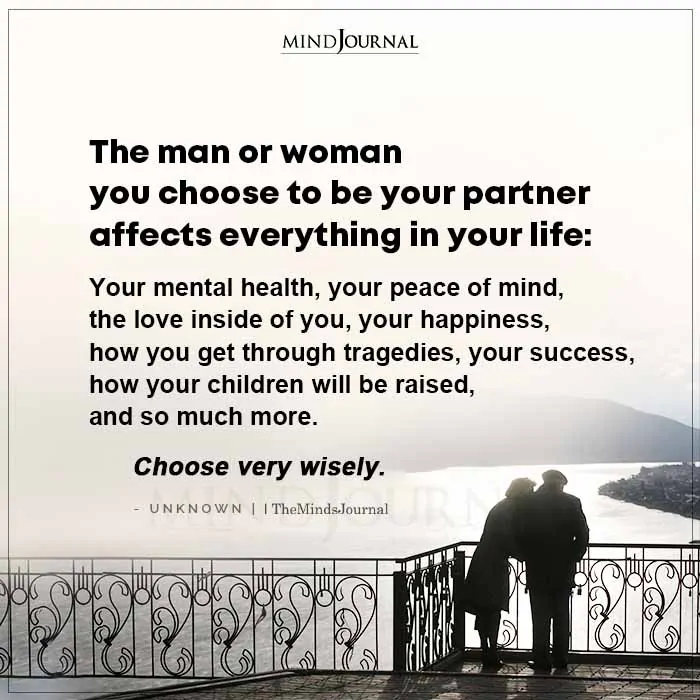
When love is hate and hate is love
The concept of a love-hate relationship is one that many people can relate to, as it often involves conflicting emotions and feelings towards someone or something.
These types of relationships are common in romantic partnerships and can be characterized by periods of intense fondness followed by equally intense moments of frustration or anger.
This emotional rollercoaster can be exhausting for both partners involved, but it’s not always a negative thing. In fact, some experts argue that a love-hate dynamic can actually strengthen a relationship if both individuals are willing to work through their differences and communicate effectively.
However, it’s important to recognize when this type of relationship becomes toxic or damaging, as continuous cycles of conflict and reconciliation are not sustainable in the long term.
Ultimately, finding love hate balance and understanding within such a relationship requires patience, empathy, and commitment from both sides.
Remember, it is important to prioritize one’s own well-being and make the best decision for oneself. While a love-hate relationship can be intense and passionate, it is not worth sacrificing one’s own mental and emotional health.
Related: Growing Stronger Together: 11 Clear Signs Your Relationship Is Getting Healthier
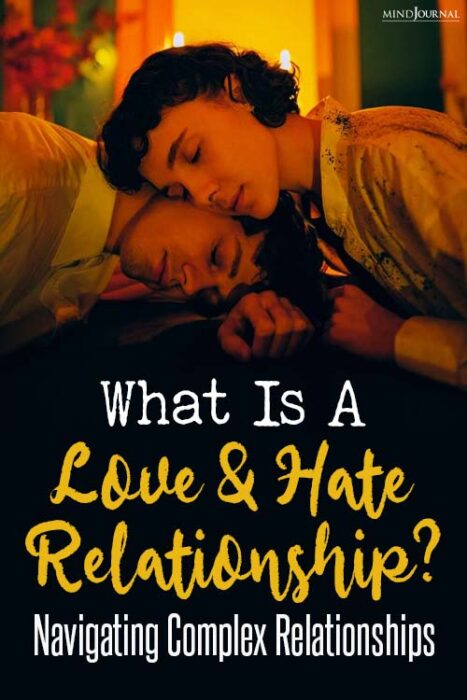
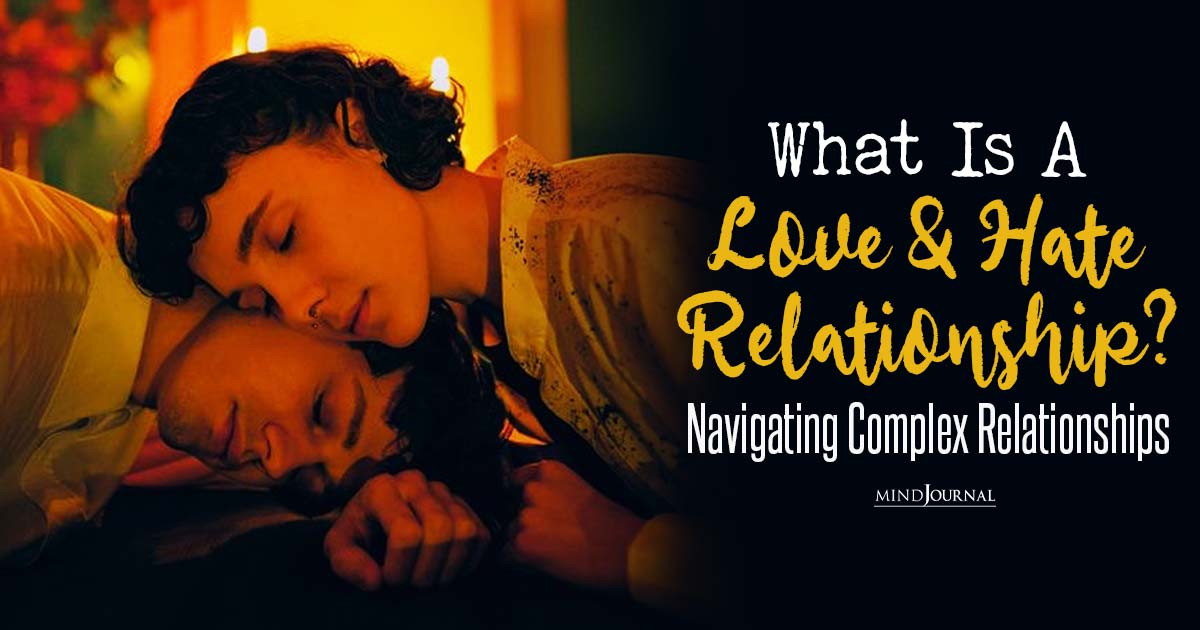

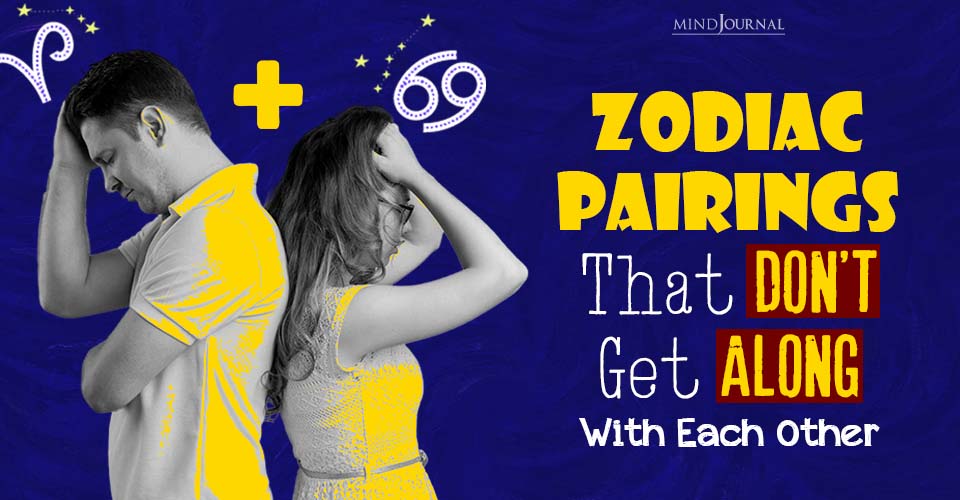
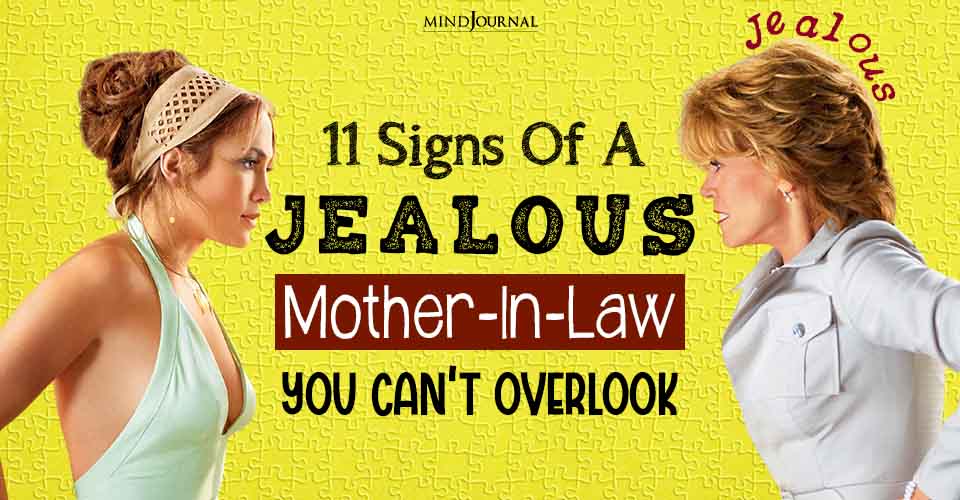



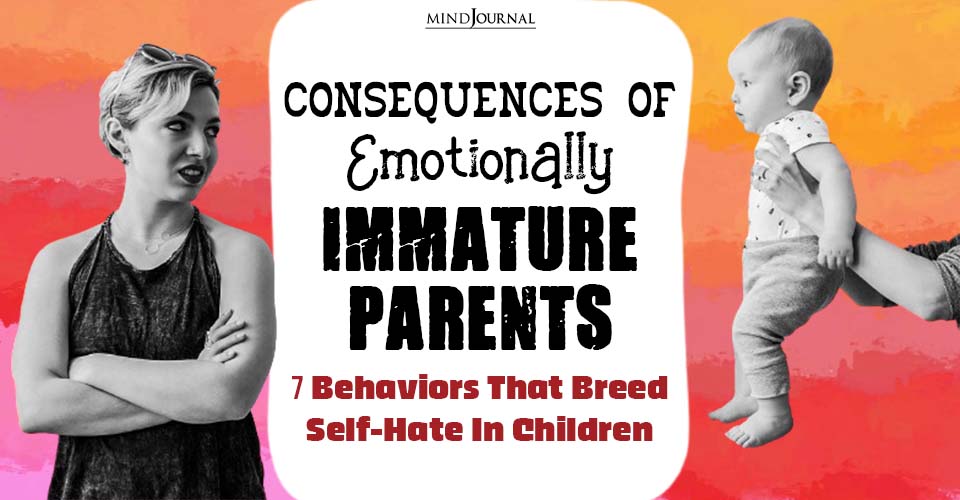
Leave a Reply
You must be logged in to post a comment.